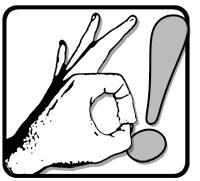
Lately the
Loonie has been acting loony. As of the 9
th,
one Canadian dollar is equivalent to $1.06 USD. As a matter of fact, only the Euro and British pound carry more weight. In fact, the Canadian dollar has risen over 20 cents in value against the
USD in less than a year! 'Holy crap!' you might say, 'There's deals to be had!'. And you'd be right. And you'd also be in harmony with your fellow
Canucks. After watching news coverage for weeks, most of what I've seen is the consistently recurring story of how this affects shopping, with Canadians unanimously and gleefully
crossing the border to cash in. There's a story here and there about the
difficulties manufacturers and exporters are having, but that's pretty much the extent of the coverage.
But surely there's more to the story than this. What else is happening in the world of currency? Well, as one goes up one goes down. The US Dollar is in
free fall as it sinks deeper and deeper into debt. Currently in
debt to the tune of $9 trillion! That is a big fucking number. $9,000,000,000,000.00. Or as
Hal Lindsay at globalresearch.ca puts it:
A million seconds is roughly 12 days, whereas a billion seconds is approximately 32 years. We understand dollars. And we understand time. So it would take 12 days to pay back a million dollars at a dollar a second. But if you started right now, you'd pay back a BILLION dollars, at a dollar a second, in the year 2039.
A trillion seconds is roughly 32 thousand years. At a dollar a second, you'd pay back a TRILLION dollars in the year 34007.
The U.S. debt stands at $9 trillion. If my calculator is working, then at a dollar a second, the U.S. could be debt- free in the year 290007.
The point of that little exercise was two-fold. The first was to clarify the sheer volume of the debt; the second was to demonstrate the possibility that anybody in government really believes we can ever pay it off.
Each U.S. citizen's share of the national debt works out, according to the National Debt clock, to $29,947.50. That means the average American family of five owes, collectively, $149,737.50.
It also means that unless the average American family of five has a net worth of at least $149,737,50 in assets excluding liabilities (they don't), America is already bankrupt.
These two conditions when viewed separately don't immediately seem related. But when you consider that the US's astronomically accruing debt (add another$1.49 billion for today, and tomorrow, etc.) is to a large extent the result of it's thuggish resource grabs in Iraq and Afghanistan, and Canada's soaring dollar is largely the result of soaring oil prices making the Oil Sands in northern Alberta ridiculously profitable, you start to see some connections.
It's unlikely that the price of oil would be so high without the wars in the middle east. The Canadian military isn't in Iraq but they are fully engaged in Afghanistan, fighting along with the US under the utterly ridiculous mantra of bringing democracy at gunpoint.
(By the way, try going to the Government of Canada website, doing a search for 'Afghanistan Mission' or something similar and see how far you get. Go ahead, try it.)
Now consider that The US Federal Reserve is 100% privately owned and the Bank of Canada is 98% privately owned, meaning that the money supply for both countries - the printing, issuance and ultimately it's value - is controlled by private individuals. What do private individuals who control large corporations do? Lots of things. They do compete but they'd rather not have to, a monopoly being much more efficient. They like to buy each other out, they like to merge, they like to enlarge their power, they like to grow, they don't like public scrutiny, they like to dominate. But unlike most other corporations, their growth is intricately tied up with government. Governments provide revenue streams, like income tax, which go to pay the interest on money lent to the government by the central banks. The interesting thing is, the goals of these central banks are diametrically opposed to the goals of democratic government: the former seeks more power, control and secrecy, and the ideals of the latter are freedom, justice and openness. However, since the government is in debt to the central banks and have given up the control of their own monetary systems, the democratic ideals are pushed aside in the interests of economic responsibility.
As Naomi Klein shows us, the conditions for corporate growth and governments implementation of policies to facilitate it are never as favorable as during a crisis or emergency, while people's attention is turned elsewhere. But mass media has proven that you don't need to shock people to distract them. Pacification works just as well, it just takes longer. It could be argued that pacification is required for the more stubborn dissenters, who may see past the shock.
Historically, Canada has tended to see itself as being in the shadow of the USA, and consequently Canadians have developed a strong sense of being different from Americans, particularly in areas of war, colonialism, shared public responsibility and political diversity. Americans, on the other hand, would be hard pressed to find Canada on a map. One population intensely aware of the other, and one virtually indifferent. One requiring pacifiers, the other shock treatment.
Why? For the creation of the North American Union, which our collective governments, along with Mexico, have been negotiating for a few years. One government, one monetary system, one set of laws and regulations, with all of them being reduced to the lowest common denominator (read efficient). All lorded over by one big central bank, privately owned of course.
Labels: conspiracy, North American Union
 Provides a striking comparison of U.S. and international media coverage of the crisis in the Middle East, zeroing in on how structural distortions in U.S. coverage have reinforced false perceptions of the Israeli-Palestinian conflict.
Provides a striking comparison of U.S. and international media coverage of the crisis in the Middle East, zeroing in on how structural distortions in U.S. coverage have reinforced false perceptions of the Israeli-Palestinian conflict. In the mid-1800s the corporation emerged as a legal "person." Imbued with a "personality" of pure self-interest, the next 100 years saw the corporation's rise to dominance. The corporation created unprecedented wealth but at what cost? The remorseless rationale of "externalities" (as Milton Friedman explains, the unintended consequences of a transaction between two parties on a third) is responsible for countless cases of illness, death, poverty, pollution, exploitation and lies.
In the mid-1800s the corporation emerged as a legal "person." Imbued with a "personality" of pure self-interest, the next 100 years saw the corporation's rise to dominance. The corporation created unprecedented wealth but at what cost? The remorseless rationale of "externalities" (as Milton Friedman explains, the unintended consequences of a transaction between two parties on a third) is responsible for countless cases of illness, death, poverty, pollution, exploitation and lies. Compares the rise of the American Neo-Conservative movement and the radicalIslamist movement, making comparisons on their origins and noting strong similarities between the two. More controversially, it argues that the threat of radical Islamism as a massive, sinister organised force of destruction, specifically in the form of al-Qaeda, is in fact a myth perpetrated by politicians in many countries—and particularly American Neo-Conservatives—in an attempt to unite and inspire their people following the failure of earlier, more utopian ideologies.
Compares the rise of the American Neo-Conservative movement and the radicalIslamist movement, making comparisons on their origins and noting strong similarities between the two. More controversially, it argues that the threat of radical Islamism as a massive, sinister organised force of destruction, specifically in the form of al-Qaeda, is in fact a myth perpetrated by politicians in many countries—and particularly American Neo-Conservatives—in an attempt to unite and inspire their people following the failure of earlier, more utopian ideologies. Critically examines the Fourth Estate, once the bastion of American democracy, asking "Could a media system, controlled by a few global corporations with the ability to overwhelm all competing voices, be able to turn lies into truth?..."
Critically examines the Fourth Estate, once the bastion of American democracy, asking "Could a media system, controlled by a few global corporations with the ability to overwhelm all competing voices, be able to turn lies into truth?..." An unflinching look at the anatomy of the American war machine, weaving unforgettable personal stories with commentary by a who's who of military and beltway insiders. Why We Fight launches a bipartisan inquiry into the workings of the military industrial complex and the rise of the American Empire.
An unflinching look at the anatomy of the American war machine, weaving unforgettable personal stories with commentary by a who's who of military and beltway insiders. Why We Fight launches a bipartisan inquiry into the workings of the military industrial complex and the rise of the American Empire. A comprehensive and critical examination of events leading up to, including and immediately following September 11, 2001. This film at the very least provides overwhelming evidence as to why there needs to be another independent commission to honestly and realistically get to the truth of what really happened that day.
A comprehensive and critical examination of events leading up to, including and immediately following September 11, 2001. This film at the very least provides overwhelming evidence as to why there needs to be another independent commission to honestly and realistically get to the truth of what really happened that day.































